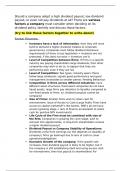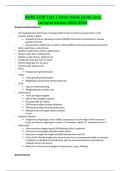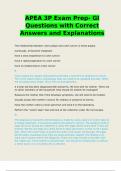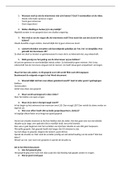Lecture notes
Bullet Points on factors that determine dividend payout policy
- Module
- Corporate Finance
- Institution
- The University Of Kent (UKC)
Comprehensive Notes taken on the factors that determine dividend payout policy written concisely and clearly in response to a past paper exam question.
[Show more]













